Literature Review on Ethical Consumerism in the Textile Industry
VerifiedAdded on 2023/04/12
|8
|1728
|260
AI Summary
This literature review explores the application of ethical consumerism in the textile industry, focusing on the case study of Shop Here. It discusses the definition of ethics in consumerism, methods of implementation, and the branch of ethics that supports consumer needs. The review also analyzes the impact of ethical consumerism on the UK textile industry and the challenges faced in implementing ethical practices. The conclusion highlights the limitations of using ethical consumerism as a strategy to increase revenue.
Contribute Materials
Your contribution can guide someone’s learning journey. Share your
documents today.
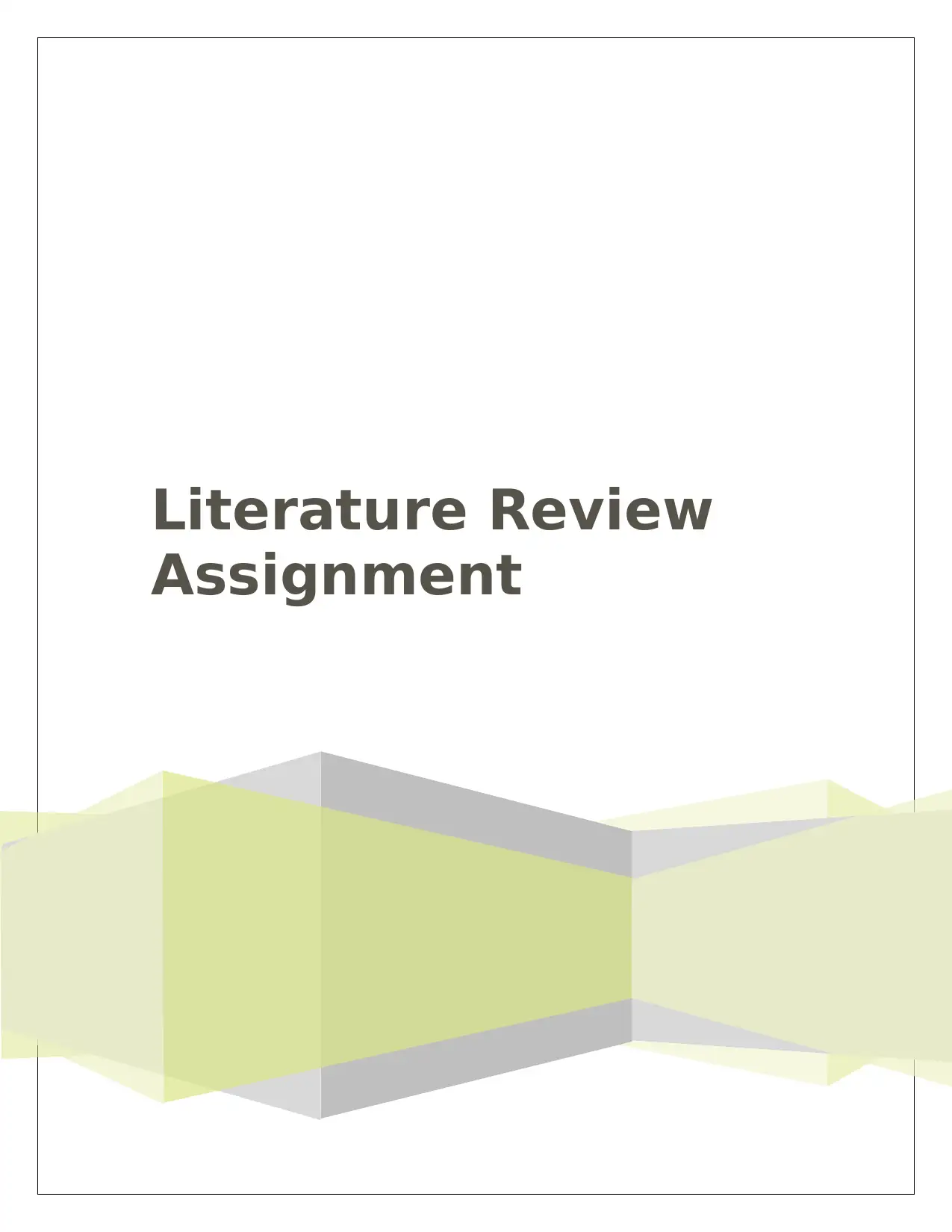
Literature Review
Assignment
Assignment
Secure Best Marks with AI Grader
Need help grading? Try our AI Grader for instant feedback on your assignments.
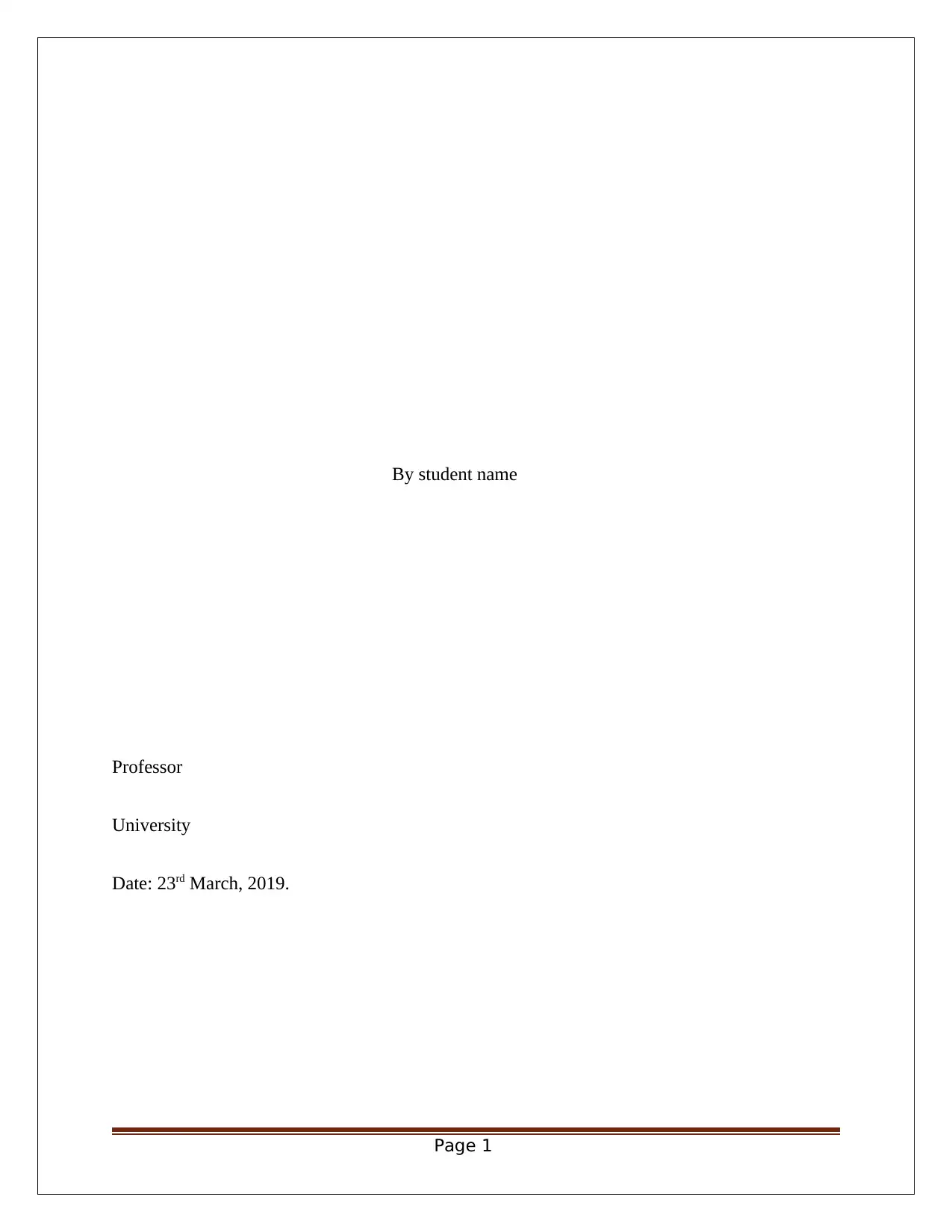
By student name
Professor
University
Date: 23rd March, 2019.
Page 1
Professor
University
Date: 23rd March, 2019.
Page 1
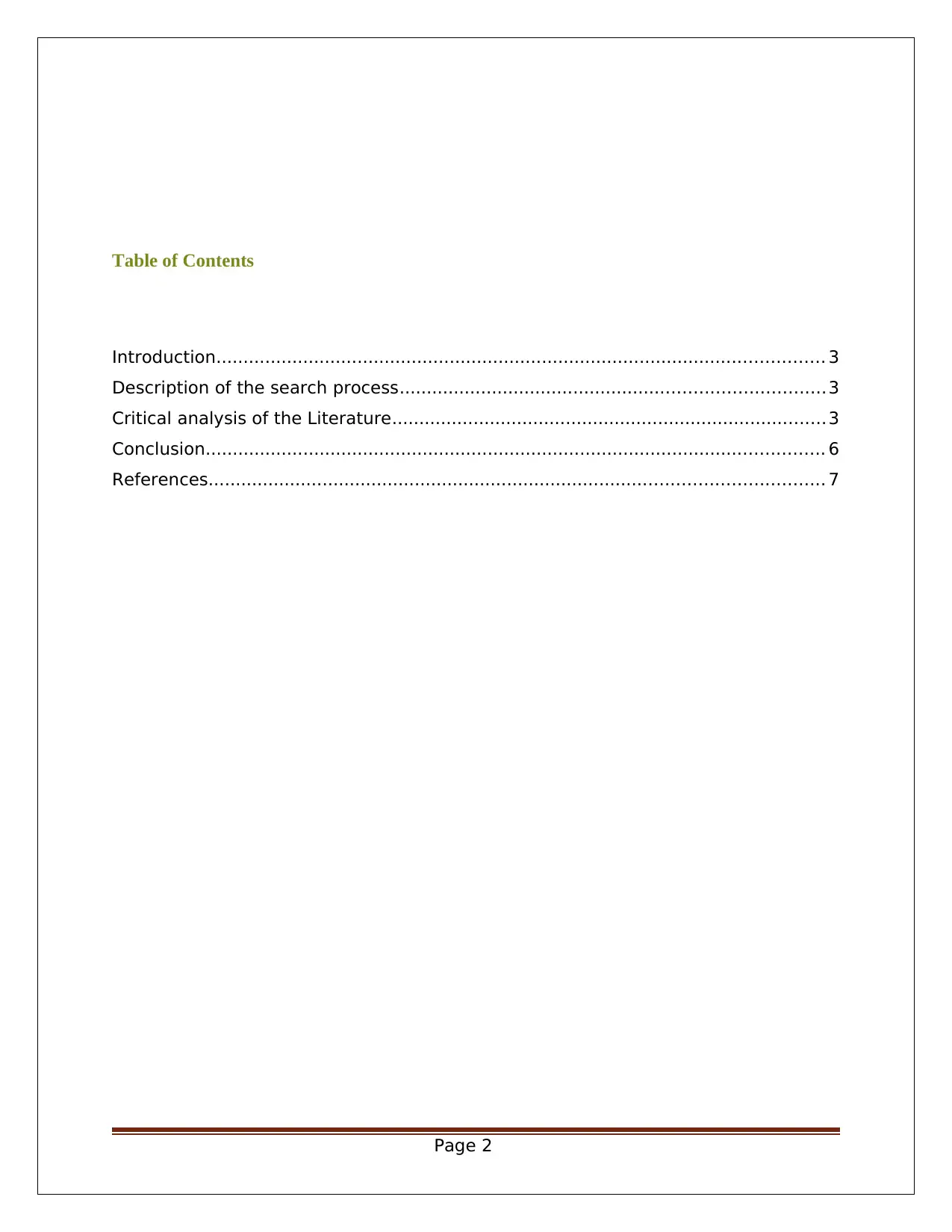
Table of Contents
Introduction................................................................................................................ 3
Description of the search process..............................................................................3
Critical analysis of the Literature................................................................................3
Conclusion.................................................................................................................. 6
References................................................................................................................. 7
Page 2
Introduction................................................................................................................ 3
Description of the search process..............................................................................3
Critical analysis of the Literature................................................................................3
Conclusion.................................................................................................................. 6
References................................................................................................................. 7
Page 2
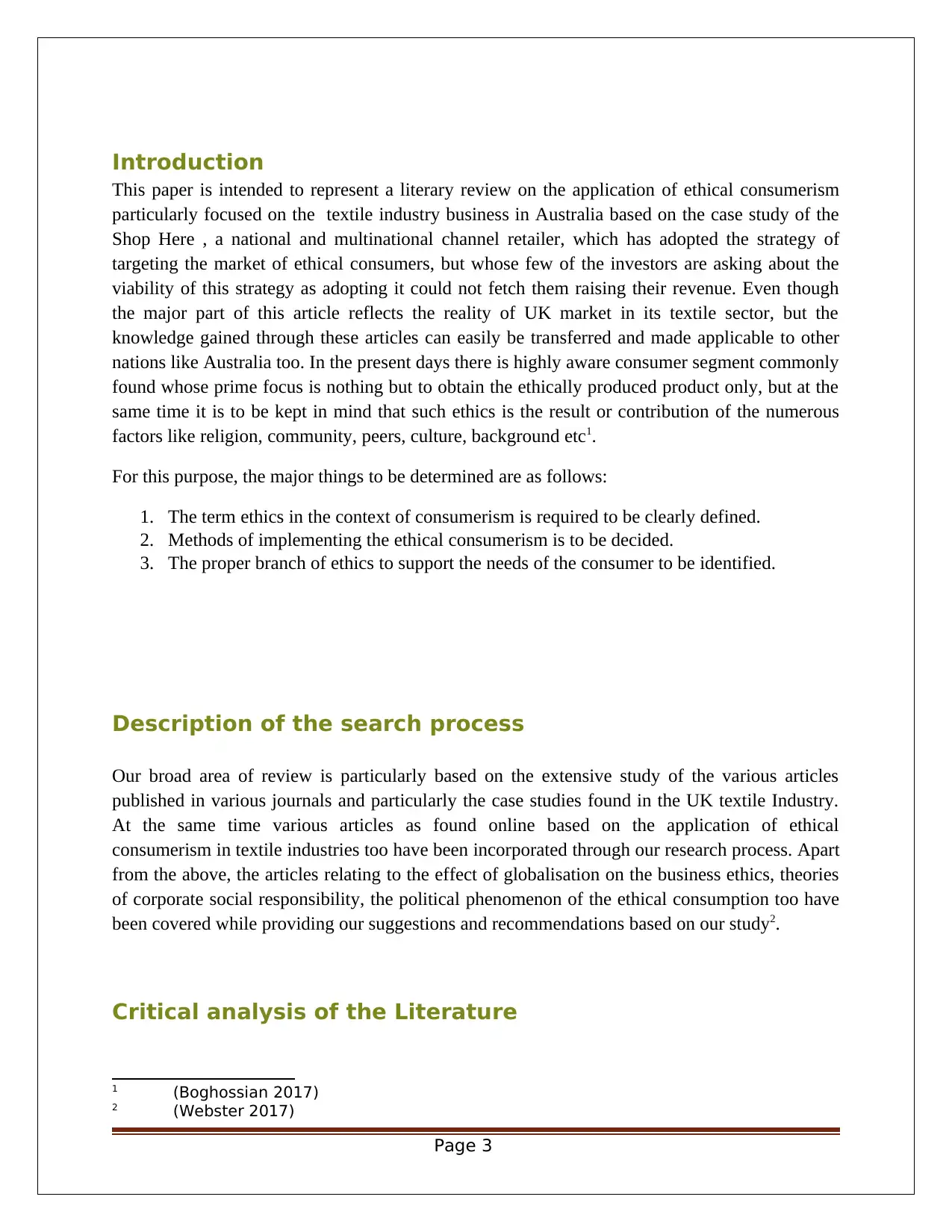
Introduction
This paper is intended to represent a literary review on the application of ethical consumerism
particularly focused on the textile industry business in Australia based on the case study of the
Shop Here , a national and multinational channel retailer, which has adopted the strategy of
targeting the market of ethical consumers, but whose few of the investors are asking about the
viability of this strategy as adopting it could not fetch them raising their revenue. Even though
the major part of this article reflects the reality of UK market in its textile sector, but the
knowledge gained through these articles can easily be transferred and made applicable to other
nations like Australia too. In the present days there is highly aware consumer segment commonly
found whose prime focus is nothing but to obtain the ethically produced product only, but at the
same time it is to be kept in mind that such ethics is the result or contribution of the numerous
factors like religion, community, peers, culture, background etc1.
For this purpose, the major things to be determined are as follows:
1. The term ethics in the context of consumerism is required to be clearly defined.
2. Methods of implementing the ethical consumerism is to be decided.
3. The proper branch of ethics to support the needs of the consumer to be identified.
Description of the search process
Our broad area of review is particularly based on the extensive study of the various articles
published in various journals and particularly the case studies found in the UK textile Industry.
At the same time various articles as found online based on the application of ethical
consumerism in textile industries too have been incorporated through our research process. Apart
from the above, the articles relating to the effect of globalisation on the business ethics, theories
of corporate social responsibility, the political phenomenon of the ethical consumption too have
been covered while providing our suggestions and recommendations based on our study2.
Critical analysis of the Literature
1 (Boghossian 2017)
2 (Webster 2017)
Page 3
This paper is intended to represent a literary review on the application of ethical consumerism
particularly focused on the textile industry business in Australia based on the case study of the
Shop Here , a national and multinational channel retailer, which has adopted the strategy of
targeting the market of ethical consumers, but whose few of the investors are asking about the
viability of this strategy as adopting it could not fetch them raising their revenue. Even though
the major part of this article reflects the reality of UK market in its textile sector, but the
knowledge gained through these articles can easily be transferred and made applicable to other
nations like Australia too. In the present days there is highly aware consumer segment commonly
found whose prime focus is nothing but to obtain the ethically produced product only, but at the
same time it is to be kept in mind that such ethics is the result or contribution of the numerous
factors like religion, community, peers, culture, background etc1.
For this purpose, the major things to be determined are as follows:
1. The term ethics in the context of consumerism is required to be clearly defined.
2. Methods of implementing the ethical consumerism is to be decided.
3. The proper branch of ethics to support the needs of the consumer to be identified.
Description of the search process
Our broad area of review is particularly based on the extensive study of the various articles
published in various journals and particularly the case studies found in the UK textile Industry.
At the same time various articles as found online based on the application of ethical
consumerism in textile industries too have been incorporated through our research process. Apart
from the above, the articles relating to the effect of globalisation on the business ethics, theories
of corporate social responsibility, the political phenomenon of the ethical consumption too have
been covered while providing our suggestions and recommendations based on our study2.
Critical analysis of the Literature
1 (Boghossian 2017)
2 (Webster 2017)
Page 3
Secure Best Marks with AI Grader
Need help grading? Try our AI Grader for instant feedback on your assignments.
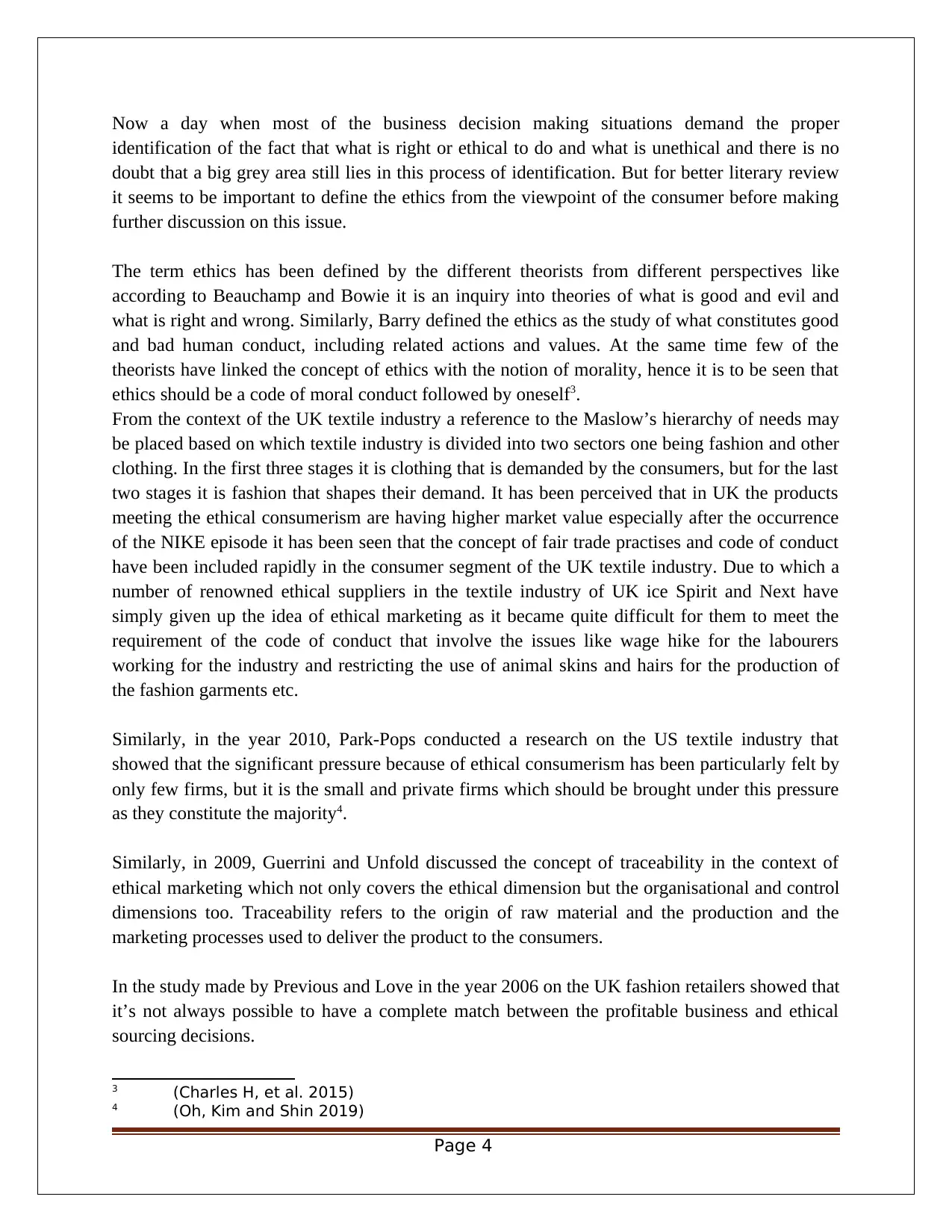
Now a day when most of the business decision making situations demand the proper
identification of the fact that what is right or ethical to do and what is unethical and there is no
doubt that a big grey area still lies in this process of identification. But for better literary review
it seems to be important to define the ethics from the viewpoint of the consumer before making
further discussion on this issue.
The term ethics has been defined by the different theorists from different perspectives like
according to Beauchamp and Bowie it is an inquiry into theories of what is good and evil and
what is right and wrong. Similarly, Barry defined the ethics as the study of what constitutes good
and bad human conduct, including related actions and values. At the same time few of the
theorists have linked the concept of ethics with the notion of morality, hence it is to be seen that
ethics should be a code of moral conduct followed by oneself3.
From the context of the UK textile industry a reference to the Maslow’s hierarchy of needs may
be placed based on which textile industry is divided into two sectors one being fashion and other
clothing. In the first three stages it is clothing that is demanded by the consumers, but for the last
two stages it is fashion that shapes their demand. It has been perceived that in UK the products
meeting the ethical consumerism are having higher market value especially after the occurrence
of the NIKE episode it has been seen that the concept of fair trade practises and code of conduct
have been included rapidly in the consumer segment of the UK textile industry. Due to which a
number of renowned ethical suppliers in the textile industry of UK ice Spirit and Next have
simply given up the idea of ethical marketing as it became quite difficult for them to meet the
requirement of the code of conduct that involve the issues like wage hike for the labourers
working for the industry and restricting the use of animal skins and hairs for the production of
the fashion garments etc.
Similarly, in the year 2010, Park-Pops conducted a research on the US textile industry that
showed that the significant pressure because of ethical consumerism has been particularly felt by
only few firms, but it is the small and private firms which should be brought under this pressure
as they constitute the majority4.
Similarly, in 2009, Guerrini and Unfold discussed the concept of traceability in the context of
ethical marketing which not only covers the ethical dimension but the organisational and control
dimensions too. Traceability refers to the origin of raw material and the production and the
marketing processes used to deliver the product to the consumers.
In the study made by Previous and Love in the year 2006 on the UK fashion retailers showed that
it’s not always possible to have a complete match between the profitable business and ethical
sourcing decisions.
3 (Charles H, et al. 2015)
4 (Oh, Kim and Shin 2019)
Page 4
identification of the fact that what is right or ethical to do and what is unethical and there is no
doubt that a big grey area still lies in this process of identification. But for better literary review
it seems to be important to define the ethics from the viewpoint of the consumer before making
further discussion on this issue.
The term ethics has been defined by the different theorists from different perspectives like
according to Beauchamp and Bowie it is an inquiry into theories of what is good and evil and
what is right and wrong. Similarly, Barry defined the ethics as the study of what constitutes good
and bad human conduct, including related actions and values. At the same time few of the
theorists have linked the concept of ethics with the notion of morality, hence it is to be seen that
ethics should be a code of moral conduct followed by oneself3.
From the context of the UK textile industry a reference to the Maslow’s hierarchy of needs may
be placed based on which textile industry is divided into two sectors one being fashion and other
clothing. In the first three stages it is clothing that is demanded by the consumers, but for the last
two stages it is fashion that shapes their demand. It has been perceived that in UK the products
meeting the ethical consumerism are having higher market value especially after the occurrence
of the NIKE episode it has been seen that the concept of fair trade practises and code of conduct
have been included rapidly in the consumer segment of the UK textile industry. Due to which a
number of renowned ethical suppliers in the textile industry of UK ice Spirit and Next have
simply given up the idea of ethical marketing as it became quite difficult for them to meet the
requirement of the code of conduct that involve the issues like wage hike for the labourers
working for the industry and restricting the use of animal skins and hairs for the production of
the fashion garments etc.
Similarly, in the year 2010, Park-Pops conducted a research on the US textile industry that
showed that the significant pressure because of ethical consumerism has been particularly felt by
only few firms, but it is the small and private firms which should be brought under this pressure
as they constitute the majority4.
Similarly, in 2009, Guerrini and Unfold discussed the concept of traceability in the context of
ethical marketing which not only covers the ethical dimension but the organisational and control
dimensions too. Traceability refers to the origin of raw material and the production and the
marketing processes used to deliver the product to the consumers.
In the study made by Previous and Love in the year 2006 on the UK fashion retailers showed that
it’s not always possible to have a complete match between the profitable business and ethical
sourcing decisions.
3 (Charles H, et al. 2015)
4 (Oh, Kim and Shin 2019)
Page 4
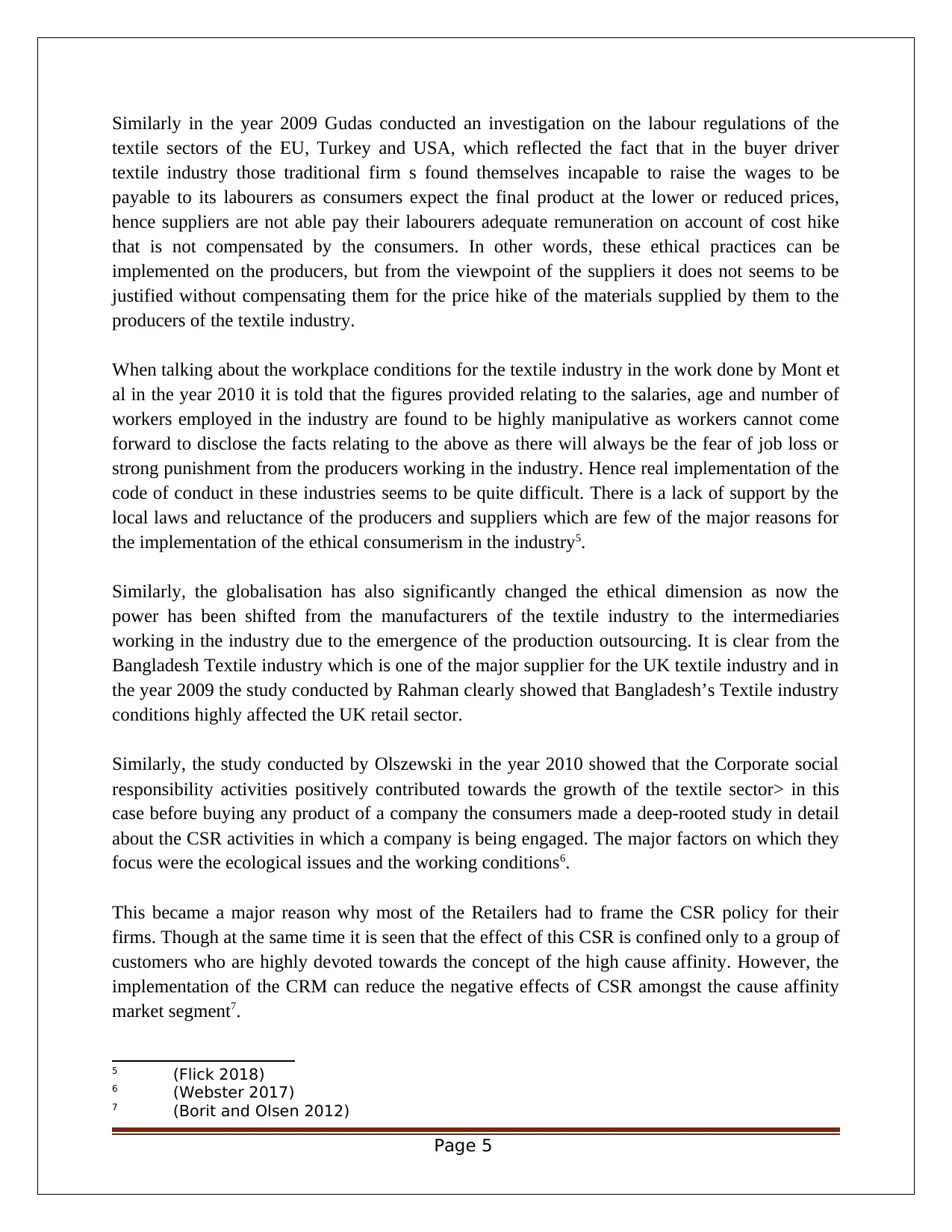
Similarly in the year 2009 Gudas conducted an investigation on the labour regulations of the
textile sectors of the EU, Turkey and USA, which reflected the fact that in the buyer driver
textile industry those traditional firm s found themselves incapable to raise the wages to be
payable to its labourers as consumers expect the final product at the lower or reduced prices,
hence suppliers are not able pay their labourers adequate remuneration on account of cost hike
that is not compensated by the consumers. In other words, these ethical practices can be
implemented on the producers, but from the viewpoint of the suppliers it does not seems to be
justified without compensating them for the price hike of the materials supplied by them to the
producers of the textile industry.
When talking about the workplace conditions for the textile industry in the work done by Mont et
al in the year 2010 it is told that the figures provided relating to the salaries, age and number of
workers employed in the industry are found to be highly manipulative as workers cannot come
forward to disclose the facts relating to the above as there will always be the fear of job loss or
strong punishment from the producers working in the industry. Hence real implementation of the
code of conduct in these industries seems to be quite difficult. There is a lack of support by the
local laws and reluctance of the producers and suppliers which are few of the major reasons for
the implementation of the ethical consumerism in the industry5.
Similarly, the globalisation has also significantly changed the ethical dimension as now the
power has been shifted from the manufacturers of the textile industry to the intermediaries
working in the industry due to the emergence of the production outsourcing. It is clear from the
Bangladesh Textile industry which is one of the major supplier for the UK textile industry and in
the year 2009 the study conducted by Rahman clearly showed that Bangladesh’s Textile industry
conditions highly affected the UK retail sector.
Similarly, the study conducted by Olszewski in the year 2010 showed that the Corporate social
responsibility activities positively contributed towards the growth of the textile sector> in this
case before buying any product of a company the consumers made a deep-rooted study in detail
about the CSR activities in which a company is being engaged. The major factors on which they
focus were the ecological issues and the working conditions6.
This became a major reason why most of the Retailers had to frame the CSR policy for their
firms. Though at the same time it is seen that the effect of this CSR is confined only to a group of
customers who are highly devoted towards the concept of the high cause affinity. However, the
implementation of the CRM can reduce the negative effects of CSR amongst the cause affinity
market segment7.
5 (Flick 2018)
6 (Webster 2017)
7 (Borit and Olsen 2012)
Page 5
textile sectors of the EU, Turkey and USA, which reflected the fact that in the buyer driver
textile industry those traditional firm s found themselves incapable to raise the wages to be
payable to its labourers as consumers expect the final product at the lower or reduced prices,
hence suppliers are not able pay their labourers adequate remuneration on account of cost hike
that is not compensated by the consumers. In other words, these ethical practices can be
implemented on the producers, but from the viewpoint of the suppliers it does not seems to be
justified without compensating them for the price hike of the materials supplied by them to the
producers of the textile industry.
When talking about the workplace conditions for the textile industry in the work done by Mont et
al in the year 2010 it is told that the figures provided relating to the salaries, age and number of
workers employed in the industry are found to be highly manipulative as workers cannot come
forward to disclose the facts relating to the above as there will always be the fear of job loss or
strong punishment from the producers working in the industry. Hence real implementation of the
code of conduct in these industries seems to be quite difficult. There is a lack of support by the
local laws and reluctance of the producers and suppliers which are few of the major reasons for
the implementation of the ethical consumerism in the industry5.
Similarly, the globalisation has also significantly changed the ethical dimension as now the
power has been shifted from the manufacturers of the textile industry to the intermediaries
working in the industry due to the emergence of the production outsourcing. It is clear from the
Bangladesh Textile industry which is one of the major supplier for the UK textile industry and in
the year 2009 the study conducted by Rahman clearly showed that Bangladesh’s Textile industry
conditions highly affected the UK retail sector.
Similarly, the study conducted by Olszewski in the year 2010 showed that the Corporate social
responsibility activities positively contributed towards the growth of the textile sector> in this
case before buying any product of a company the consumers made a deep-rooted study in detail
about the CSR activities in which a company is being engaged. The major factors on which they
focus were the ecological issues and the working conditions6.
This became a major reason why most of the Retailers had to frame the CSR policy for their
firms. Though at the same time it is seen that the effect of this CSR is confined only to a group of
customers who are highly devoted towards the concept of the high cause affinity. However, the
implementation of the CRM can reduce the negative effects of CSR amongst the cause affinity
market segment7.
5 (Flick 2018)
6 (Webster 2017)
7 (Borit and Olsen 2012)
Page 5
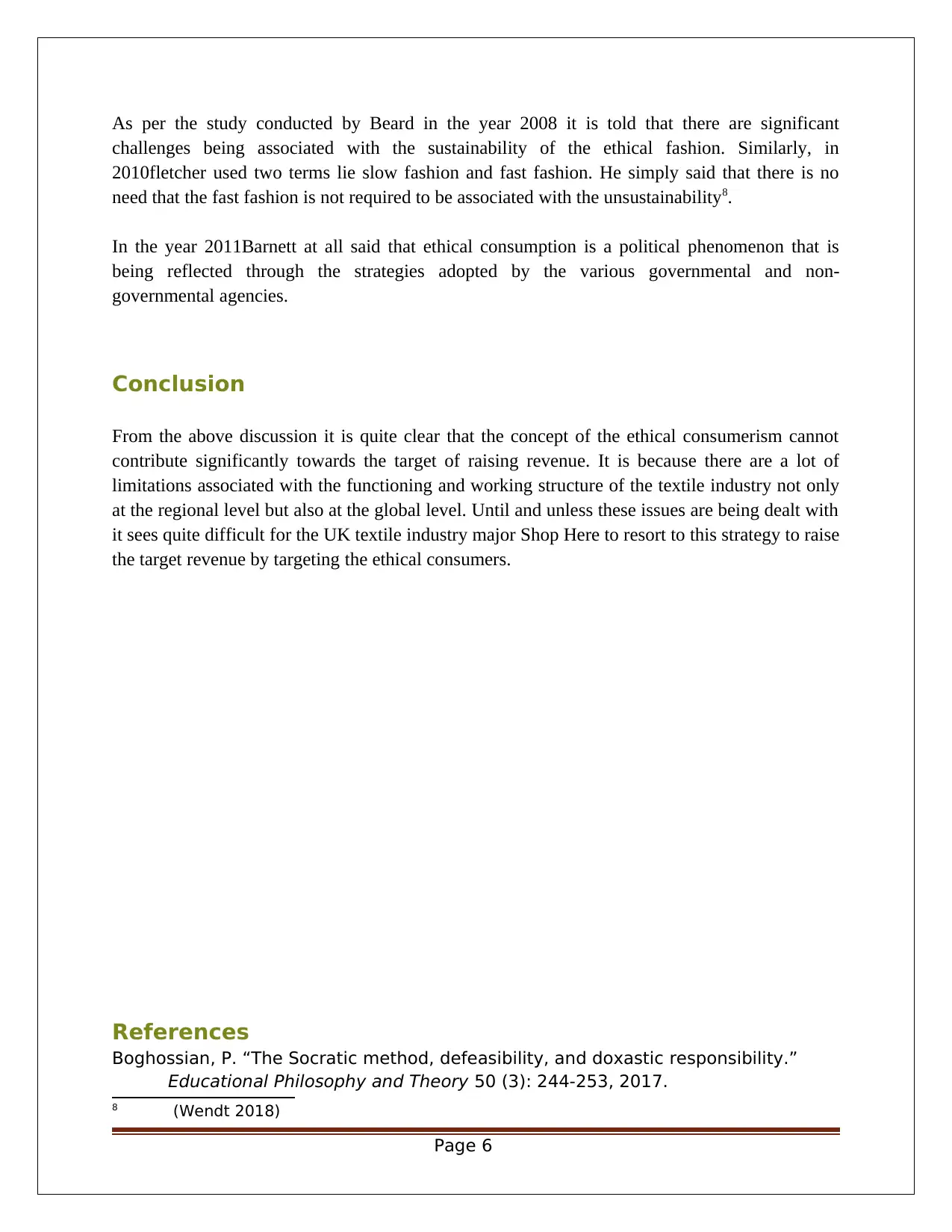
As per the study conducted by Beard in the year 2008 it is told that there are significant
challenges being associated with the sustainability of the ethical fashion. Similarly, in
2010fletcher used two terms lie slow fashion and fast fashion. He simply said that there is no
need that the fast fashion is not required to be associated with the unsustainability8.
In the year 2011Barnett at all said that ethical consumption is a political phenomenon that is
being reflected through the strategies adopted by the various governmental and non-
governmental agencies.
Conclusion
From the above discussion it is quite clear that the concept of the ethical consumerism cannot
contribute significantly towards the target of raising revenue. It is because there are a lot of
limitations associated with the functioning and working structure of the textile industry not only
at the regional level but also at the global level. Until and unless these issues are being dealt with
it sees quite difficult for the UK textile industry major Shop Here to resort to this strategy to raise
the target revenue by targeting the ethical consumers.
References
Boghossian, P. “The Socratic method, defeasibility, and doxastic responsibility.”
Educational Philosophy and Theory 50 (3): 244-253, 2017.
8 (Wendt 2018)
Page 6
challenges being associated with the sustainability of the ethical fashion. Similarly, in
2010fletcher used two terms lie slow fashion and fast fashion. He simply said that there is no
need that the fast fashion is not required to be associated with the unsustainability8.
In the year 2011Barnett at all said that ethical consumption is a political phenomenon that is
being reflected through the strategies adopted by the various governmental and non-
governmental agencies.
Conclusion
From the above discussion it is quite clear that the concept of the ethical consumerism cannot
contribute significantly towards the target of raising revenue. It is because there are a lot of
limitations associated with the functioning and working structure of the textile industry not only
at the regional level but also at the global level. Until and unless these issues are being dealt with
it sees quite difficult for the UK textile industry major Shop Here to resort to this strategy to raise
the target revenue by targeting the ethical consumers.
References
Boghossian, P. “The Socratic method, defeasibility, and doxastic responsibility.”
Educational Philosophy and Theory 50 (3): 244-253, 2017.
8 (Wendt 2018)
Page 6
Paraphrase This Document
Need a fresh take? Get an instant paraphrase of this document with our AI Paraphraser
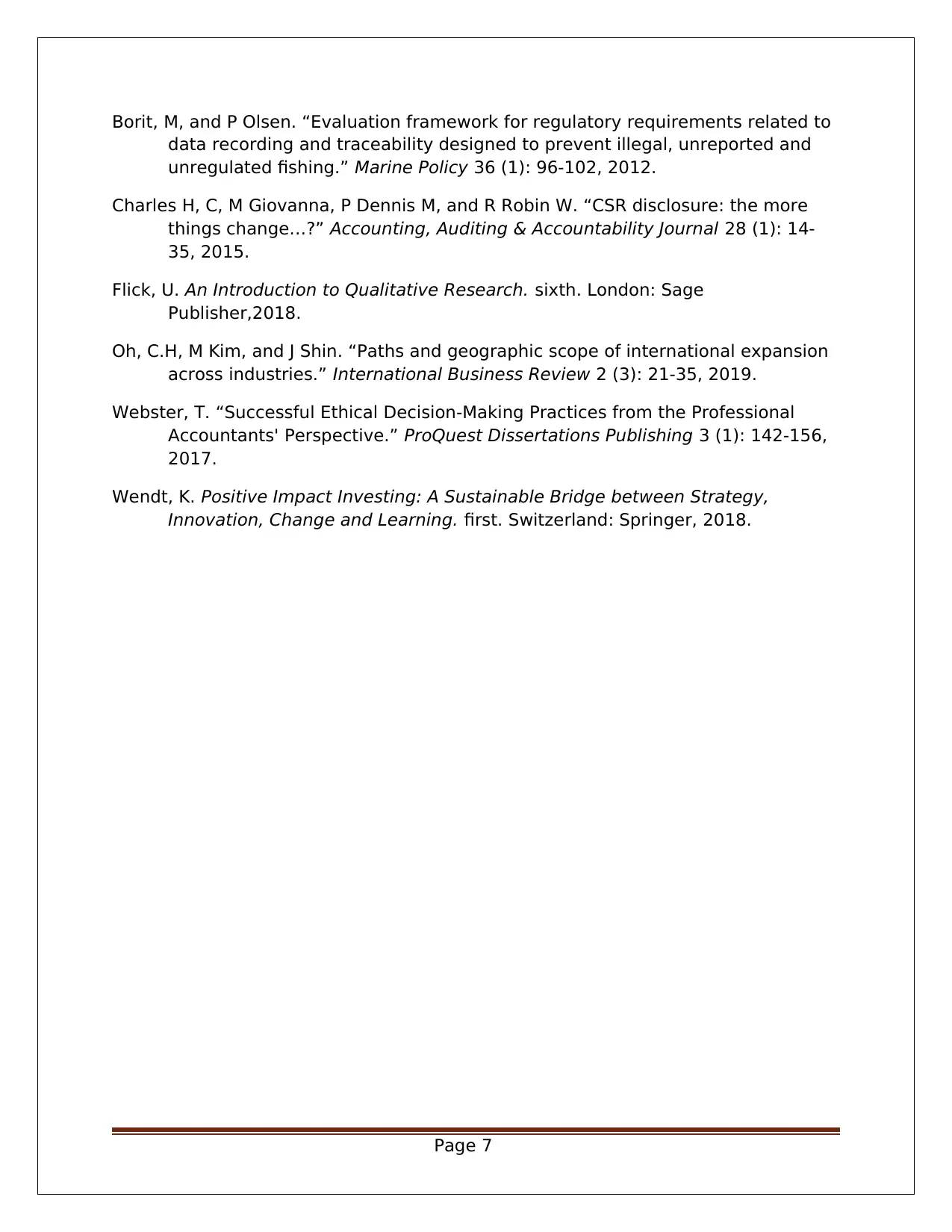
Borit, M, and P Olsen. “Evaluation framework for regulatory requirements related to
data recording and traceability designed to prevent illegal, unreported and
unregulated fishing.” Marine Policy 36 (1): 96-102, 2012.
Charles H, C, M Giovanna, P Dennis M, and R Robin W. “CSR disclosure: the more
things change…?” Accounting, Auditing & Accountability Journal 28 (1): 14-
35, 2015.
Flick, U. An Introduction to Qualitative Research. sixth. London: Sage
Publisher,2018.
Oh, C.H, M Kim, and J Shin. “Paths and geographic scope of international expansion
across industries.” International Business Review 2 (3): 21-35, 2019.
Webster, T. “Successful Ethical Decision-Making Practices from the Professional
Accountants' Perspective.” ProQuest Dissertations Publishing 3 (1): 142-156,
2017.
Wendt, K. Positive Impact Investing: A Sustainable Bridge between Strategy,
Innovation, Change and Learning. first. Switzerland: Springer, 2018.
Page 7
data recording and traceability designed to prevent illegal, unreported and
unregulated fishing.” Marine Policy 36 (1): 96-102, 2012.
Charles H, C, M Giovanna, P Dennis M, and R Robin W. “CSR disclosure: the more
things change…?” Accounting, Auditing & Accountability Journal 28 (1): 14-
35, 2015.
Flick, U. An Introduction to Qualitative Research. sixth. London: Sage
Publisher,2018.
Oh, C.H, M Kim, and J Shin. “Paths and geographic scope of international expansion
across industries.” International Business Review 2 (3): 21-35, 2019.
Webster, T. “Successful Ethical Decision-Making Practices from the Professional
Accountants' Perspective.” ProQuest Dissertations Publishing 3 (1): 142-156,
2017.
Wendt, K. Positive Impact Investing: A Sustainable Bridge between Strategy,
Innovation, Change and Learning. first. Switzerland: Springer, 2018.
Page 7
1 out of 8
Related Documents
Your All-in-One AI-Powered Toolkit for Academic Success.
+13062052269
info@desklib.com
Available 24*7 on WhatsApp / Email
![[object Object]](/_next/static/media/star-bottom.7253800d.svg)
Unlock your academic potential
© 2024 | Zucol Services PVT LTD | All rights reserved.





